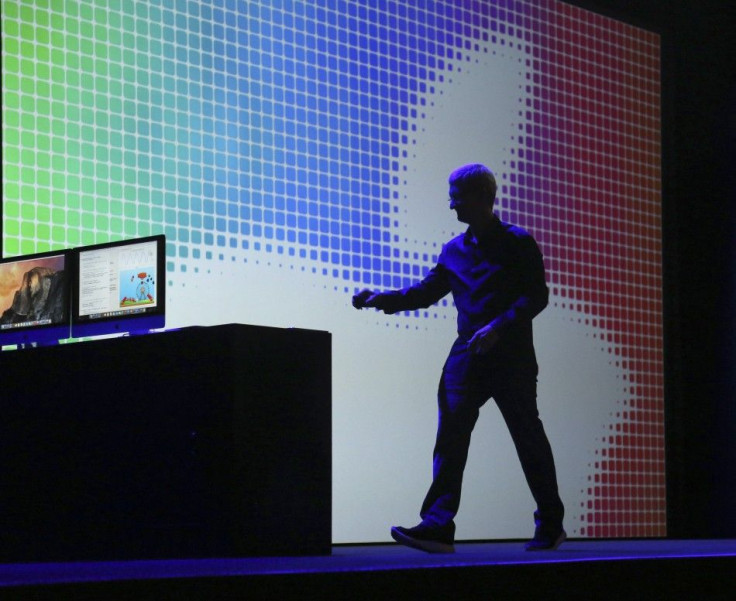Google Android 4.5 Lollipop vs Apple iOS 8: Apple and Google Fight for Better User Experience

Apple and Google have fought continuously for the leading mobile operating systems provider. The two companies have been neck in neck constantly working on increasing their market share. An increase in the number of users of their mobile operating systems meant more hardware cycles for both firms. With Apple's Worldwide Developer's Conference commencing and the iOS 8 finally unveiled, all eyes turn to Google's I/O Conference later this month for the Android 4.5 Lollipop update release. Who will offer the better user experience?
During the Macworld in 2001, Steve Jobs described the company's "digital hub" approach for the Mac. The strategy involved transforming the Mac into a device that can handle a variety of purposes including playing music, recording movies and other similar tasks. It is a one-device-for-all approach. This year's Worldwide Developer Conference, it appears Apple has gone back to its roots. The company's introduction of the iOS 8 suggests that Apple wants to turn the iPhone into the next best single hub device.
While the company has acknowledge Jobs' wishes, it will also be introducing its own take. According to Tech Crunch, Steve Jobs noted in his last WWDC Keynote that Apple will focus on iCloud as the new hub. "We're going to demote the PC and the Mac to just be a device," Jobs noted. However, the iCloud has not fulfilled Jobs' vision. Instead, Apple appears to be shifting focus on the iOS 8. The shift may be due to the increasing surge of smartphone users than desktops, laptops or tablets. According to Andreessen Horowitz analyst Benedict Evans: "It may be better to think of tablets, laptops and desktops as one 'big screen' segment, all of which compete with smartphones, and for which the opportunity is just smaller than that for smartphones."
Here are some of the features people can expect from the iOS 8 emphasizing Apple's interest in focusing its ecosystem over the interface:
- Users need to access their iPhones if they wish to send SMS messages or place calls via the MAC OS X Yosemite.
- People can turn to their iPhones for information about their health and similar areas of concern. The new Health app and HealthKit offer sensors, dietary and fitness functions that enhance the overall Apple ecosystem.
- The HomeKit function transforms the iPhone as a home control center allowing people to manage their home devices. Apple has also allowed programmers to broaden Siri's vocabulary to execute more tasks.
- CarPlay offers a hands-free smartphone experience.
Apple has also reportedly opened the TouchID to third-party developers offering more options to transact financially or secure the phone.
Android 4.5 Lollipop
According to reports, Google will be revealing its next mobile operating system during its Google I/O Conference. There are also reports saying that the next update will go by the name Android 4.5 Lollipop. Similar to Apple's goal, Google has been working on addressing its fragmentation issues. The company issued the Android 4.4 KitKat and made it accessible to older Android devices. There is also the Hera initiative describing Google's intentions of combining Search, Android and Chrome capabilities. According to the Guardian Liberty Voice, Android 4.5 Lollipop should support the Hera project further featuring HTML 5 integration along with better multi-window capabilities. To push the Android OS more into competing with the iOS, Google also plans on creating OK Google - a voice search assistant with similar functions as Siri. The application will eventually be called OK Google Everywhere offering deeper integration into the Android OS ecosystem.
The main difference between Apple's iOS and Google's Android is that the iOS has been exclusive to Apple hardware devices. Android's interface goes through several tweaks depending on the manufacturer and their offerings. Google's increasing efforts to unify the Android experience should pit it closer to the format of Apple's iOS and even more into competition against it.




















